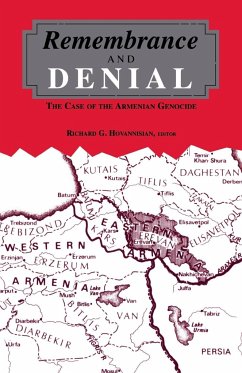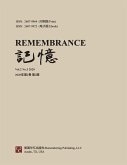The Armenian Genocide that began in World War I, during the drive to transform the plural Ottoman Empire into a monoethnic Turkey, removed a people from its homeland and erased most evidence of their three-thousand-year-old material and spiritual culture. For the rest of this century, changing world events, calculated silence, and active suppression of memory have overshadowed the initial global outrage and have threatened to make this calamity "the forgotten genocide" of world history.
This volume squarely confronts the denial of the Armenian Genocide by the Turkish government, which has expended considerable political and financial resources to repress the facts surrounding this event and even enlisted American and European pseudo-academics to rationalize the issue. Fourteen leading scholars from the United States, Canada, France, England, Germany, and Israel here examine the Armenian Genocide from a variety of perspectives to refute those efforts and show how remembrance and denial have shaped perceptions of the event.
Many of the chapters draw on archival records and court proceedings to review the precursors and process of the genocide, examine German complicity, and share the responses of victims, perpetrators, and bystanders. Other contributions consider the impact of the event on Jews before and during the Holocaust; the role of memoirs, oral histories, and literature; the various manifestations of denial; and the contest between remembrance and denial in the academic arena.
Public awareness of this tragic event has now been heightened by studies of both comparative genocide and the Armenian Genocide itself. Remembrance and Denial shows that although rationalization of theArmenian Genocide is far more advanced than denial of the Holocaust, strong similarities exist in the approaches and strategies of the deniers. It seeks redress for eighty years of silence and stakes out a position that will be difficult to deny.
Hinweis: Dieser Artikel kann nur an eine deutsche Lieferadresse ausgeliefert werden.
This volume squarely confronts the denial of the Armenian Genocide by the Turkish government, which has expended considerable political and financial resources to repress the facts surrounding this event and even enlisted American and European pseudo-academics to rationalize the issue. Fourteen leading scholars from the United States, Canada, France, England, Germany, and Israel here examine the Armenian Genocide from a variety of perspectives to refute those efforts and show how remembrance and denial have shaped perceptions of the event.
Many of the chapters draw on archival records and court proceedings to review the precursors and process of the genocide, examine German complicity, and share the responses of victims, perpetrators, and bystanders. Other contributions consider the impact of the event on Jews before and during the Holocaust; the role of memoirs, oral histories, and literature; the various manifestations of denial; and the contest between remembrance and denial in the academic arena.
Public awareness of this tragic event has now been heightened by studies of both comparative genocide and the Armenian Genocide itself. Remembrance and Denial shows that although rationalization of theArmenian Genocide is far more advanced than denial of the Holocaust, strong similarities exist in the approaches and strategies of the deniers. It seeks redress for eighty years of silence and stakes out a position that will be difficult to deny.
Hinweis: Dieser Artikel kann nur an eine deutsche Lieferadresse ausgeliefert werden.








